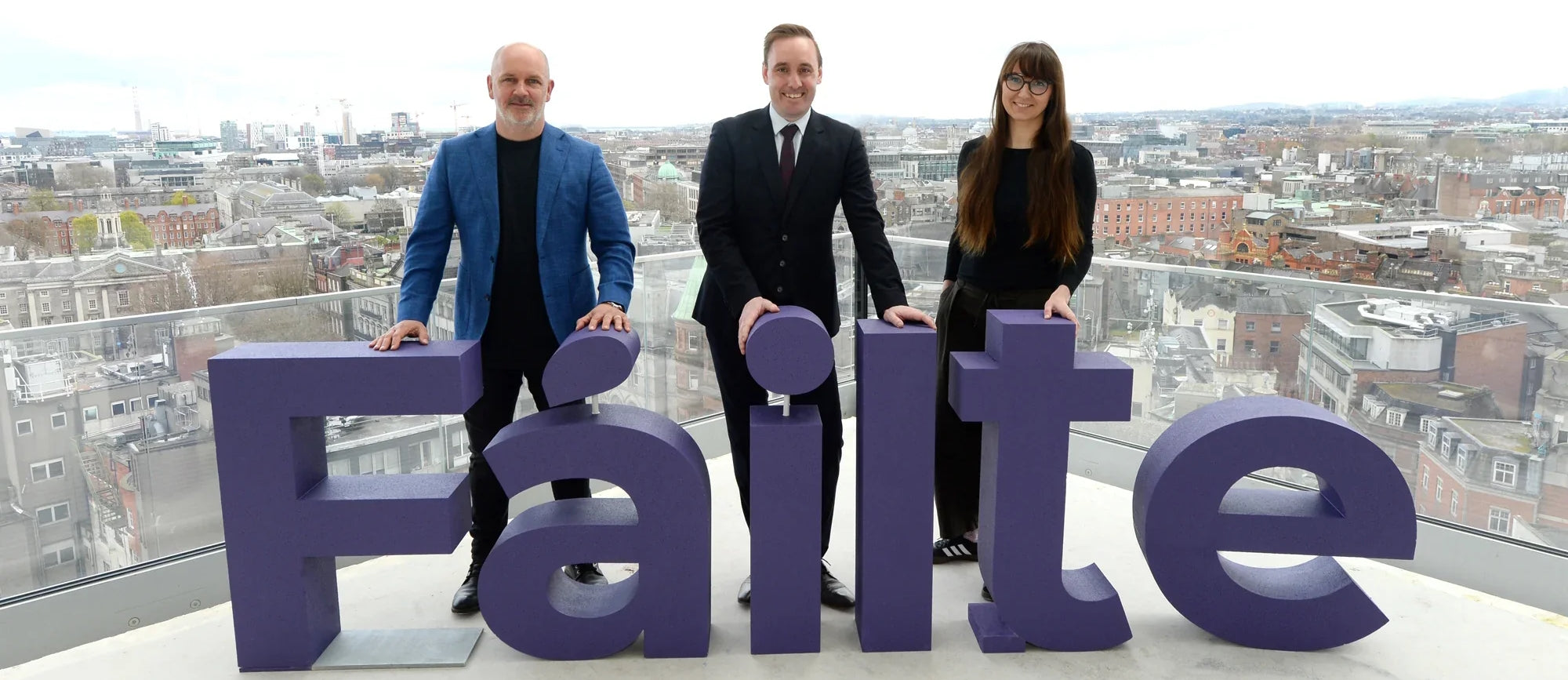About the Initiative
We're thrilled to announce the launch of Fáilte 2025, our yearly initiative dedicated to celebrating and supporting Irish businesses.
Fáilte is an opportunity for businesses of all sizes and sectors to showcase their products and unlock their full potential. Whether you're a startup, a seasoned entrepreneur, a designer, or a maker, we invite you to be part of this exciting journey.

How Does It Work?
To start your Fáilte journey we invite you to click the link in the application section of our page to enter. Alternatively, you can download an application form and send it via email to failte@carrollsirishgifts.com or by post to:
Fáilte,
Carrolls Irish Gifts Head Office,
Unit 20 Fonthill Business Park,
Fonthill Road,
D22 RF90
Applications close on May 4th 2025. Entries must be made by the product supplier, and the supplier must be VAT registered in the Republic of Ireland.
What is the 2025 Criteria?
Here are the criteria you'll need to meet:
Applicants must be 18 years or over.
Products must fall within the categories of Gift, Homeware, Jewellery, Food, or Clothing.
Submitted products must be original and not infringe on third-party rights.
The applicant's company must be located in either the Republic or North of Ireland.
Applicants must have the capacity to scale up production or manufacture for a fast-paced environment.
Meet The Panel

Peter Hyland
Group CEO

Amanda Haslett
Senior Buyer

Gareth Kelly
Head of Purchasing

Pilar Soler
Buyer
What is the Prize?
We're offering a fantastic support package valued at €20,000 to the Fáilte 2025 winner. This includes:
Apply Now to Be Part of Fáilte 2025
We’re looking for authentic, high-quality, Irish-made products to feature in our stores and online. Whether you create handcrafted jewellery, artisan foods, or unique textiles, this is an incredible opportunity to grow your brand with Carrolls Irish Gifts.
Fáilte 2024 Winner
Enniskinn
Our Fáilte 2024 winner Enniskinn creates handmade skincare products in small batches on the beautiful shores of Lough Erne, Enniskillen.
Enniskinn is a vibrant brand of self-care products, inspired by enchanting landscapes and folklore. They share the natural scents and peaceful stories of the isle, of the hills, of the lough. You’ll feel the spirit and myth of the Emerald Isle with every scent.


